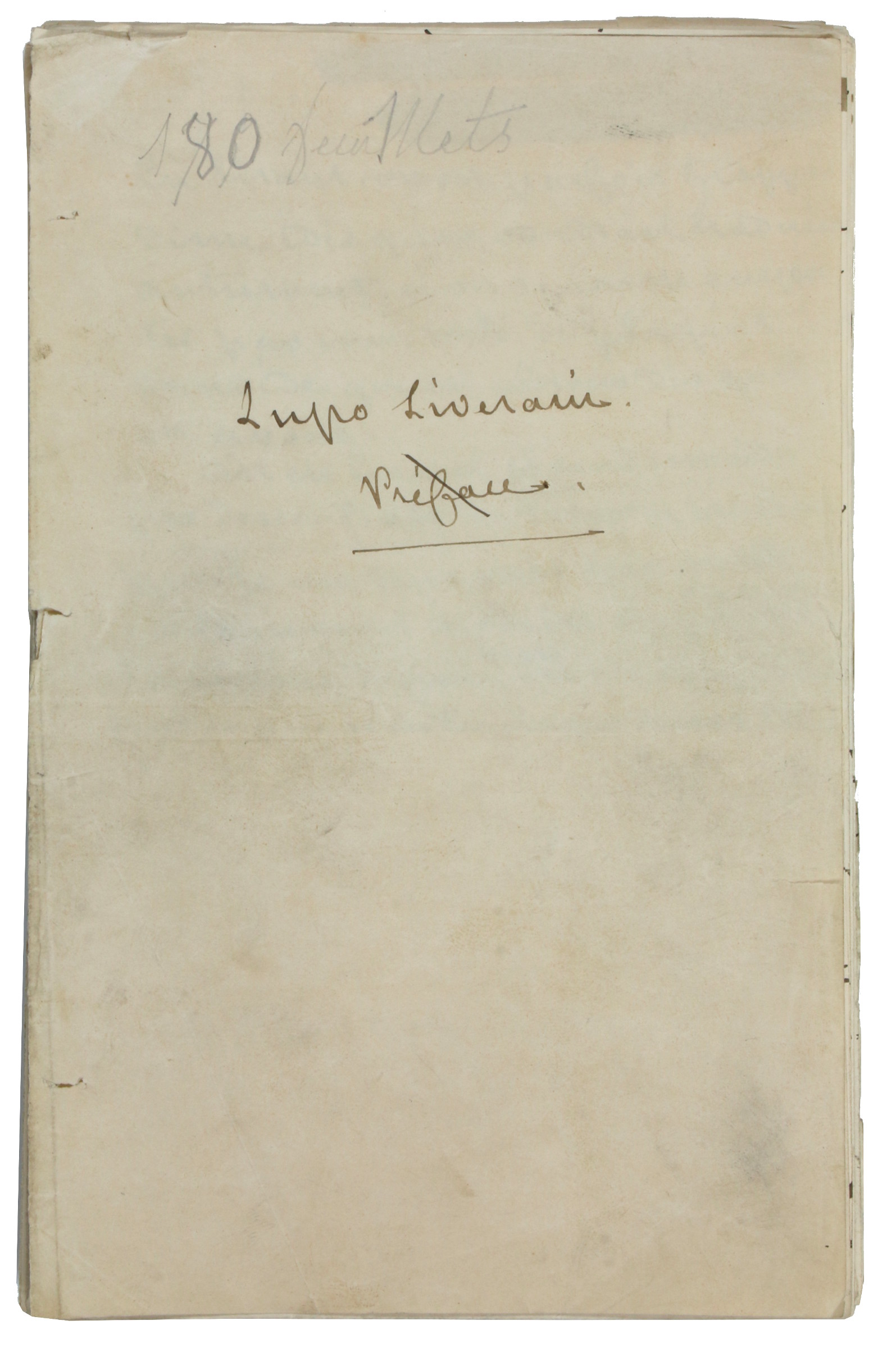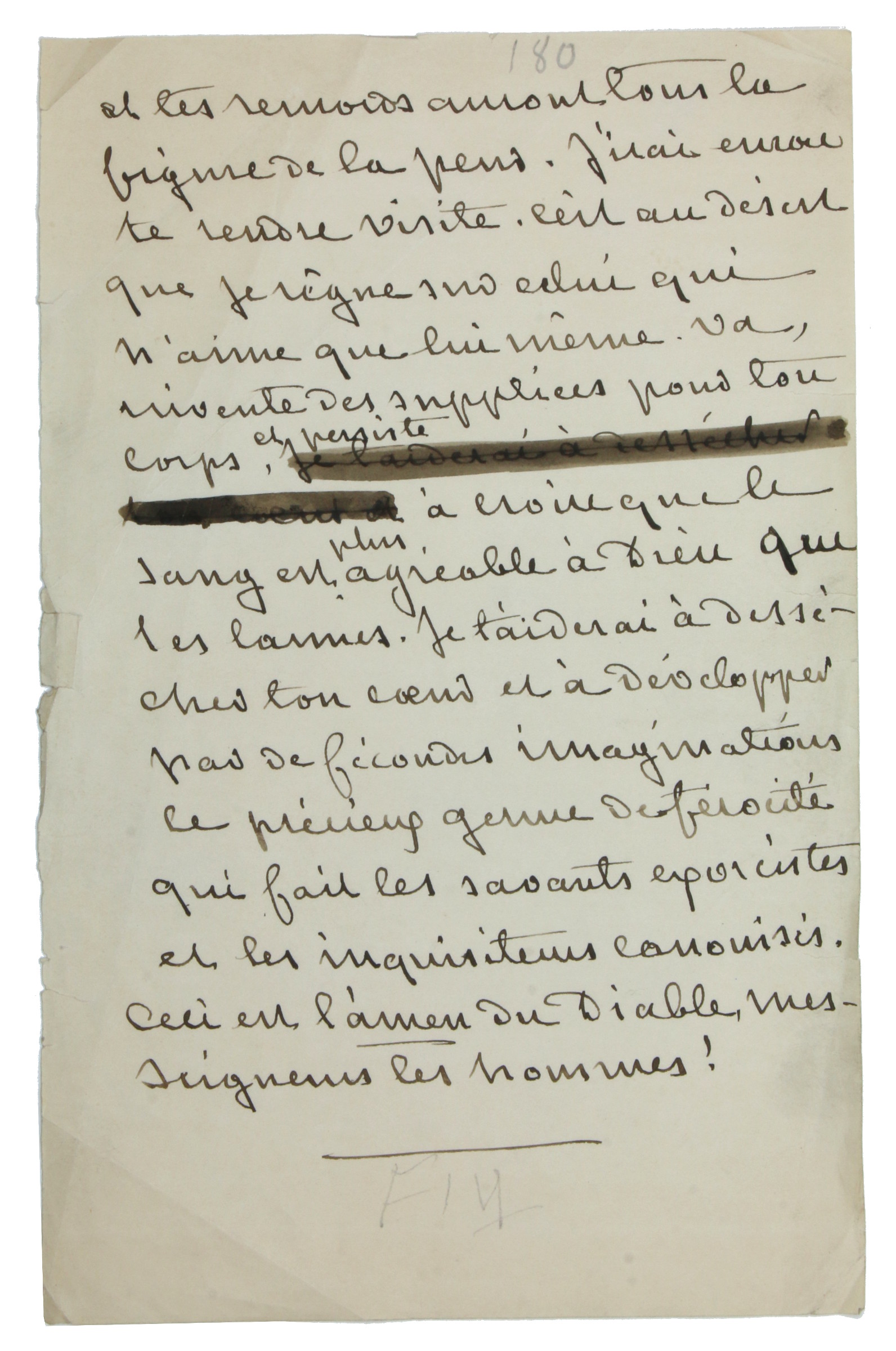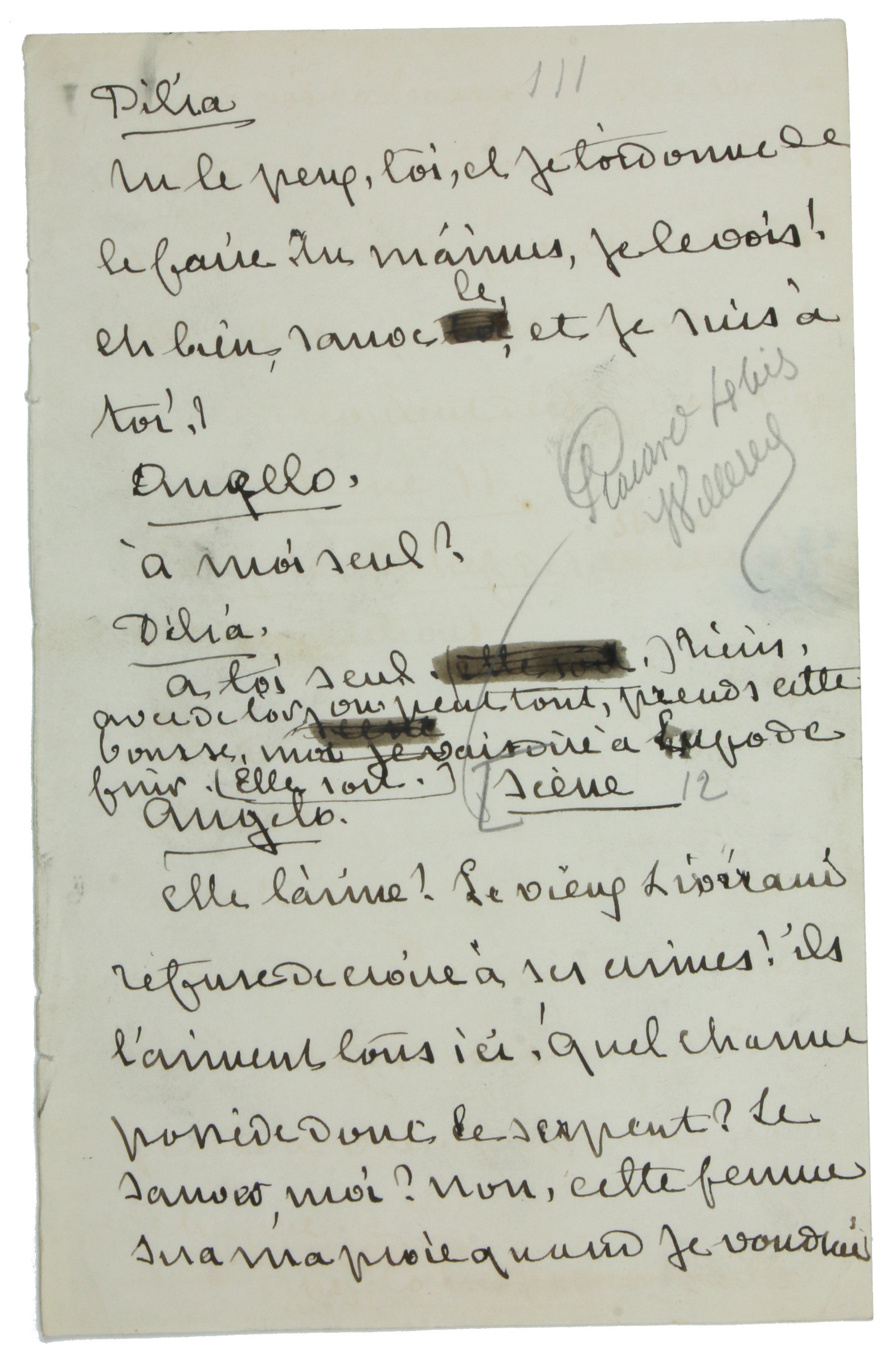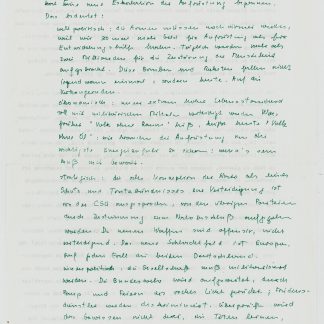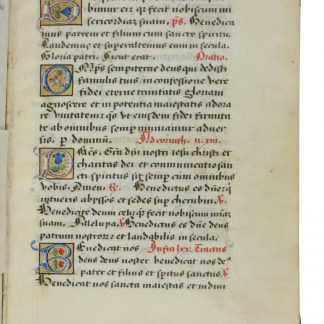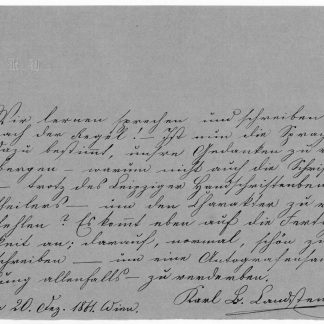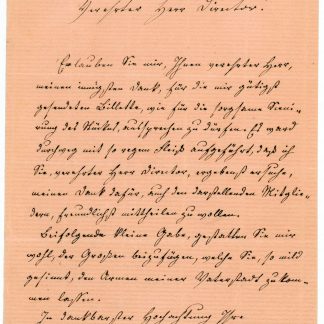George Sand's "theosophical testament"
"Lupo Liverani". Autograph manuscript.
8vo. French manuscript in brown ink on paper. (1), 180 ff.
€ 18,000.00
Complete manuscript of George Sand's first theological text that is loosely based on Tirso da Molina's religious drama "El condenado por desconfiado" (The Doubted Damned) from 1635. Lupo Liverani first appeared in the Revue des Deux Mondes on 1 December 1869 and was later integrated into the 1876 collection La Coupe. Considering the countless autograph deletions and corrections in ink, additions of pasted paper, as well as annotations and pagination in a different hand in pencil, the manuscript is very likely Sand's final copy of the play in three acts that was sent to the editors at the Revue des Deux Mondes.
George Sand saw her religious convictions expressed in Tirso da Molina's classic of the Spanish Golden Age, even if the friar Molina, who was often reprimanded for his plays and transferred on disciplinary grounds, outwardly had to conform to Catholic doctrine under the threat of the Spanish Inquisition. Therefore, Sand's "armchair spectacle" that was not intended for performance despite being couched as a play, is supposed to do justice to the underlying idea of The Doubted Damned according to Sand's interpretation. In the interesting preface she even goes to far as to say, "taking God and the devil symbolically [...], where Molina lets them appear and act, I allowed myself to put the words that I consider to be the translation of the true idea of the master into the mouth of Satan" (preface, pp. 10f.). Lines of dialogue such as the following introduce a benign Satan who asks the guilt-ridden brigand Lupo to forgive himself: "Lupo - My father, my beloved father, I deserved the eternal torments, they are nothing for me at the price of what I suffer by seeing you die of my hand. Good God, just God whom I have never known how to pray, make my father forget that I was born in the abode of the just! Make him happy and I will not reproach you for my punishment. And you, Satan, whom I served without realizing it, do with me what you will. I defy you to hurt me as much as this iron heart does to me by breaking in my chest! - Satan - Come, your father is no more and he is saved. You still have time to live. I will pour for you the drink of oblivion in battles and pleasures!" (Act III, Scene 11).
The ideas expressed in "Lupo Liverani" are anti-clerical, reject original sin, predestination, and hell. The preface retraces the Catholic discourse on free will and the grace of God, connecting Tirso da Molina to his contemporary namesake, the Jesuit theologian Luis de Molina and early Christian Pelagianism, while contrasting them with Jansenism and Augustinianism. In the context of her own times, Sand's religious convictions are close to Christian Theosophy; Catherine Masson calls "Lupo Liverani" Sand's "theosophical testament".
Some browning and occasional tears, partly affecting the text. Good condition overall.
Catherine Masson, "Lupo Liverani: adaptation du Damné pour doute de Tirso de Molina et testament théosophique de George Sand", in: Women in French Studies 1 (2014), pp. 117-130.


